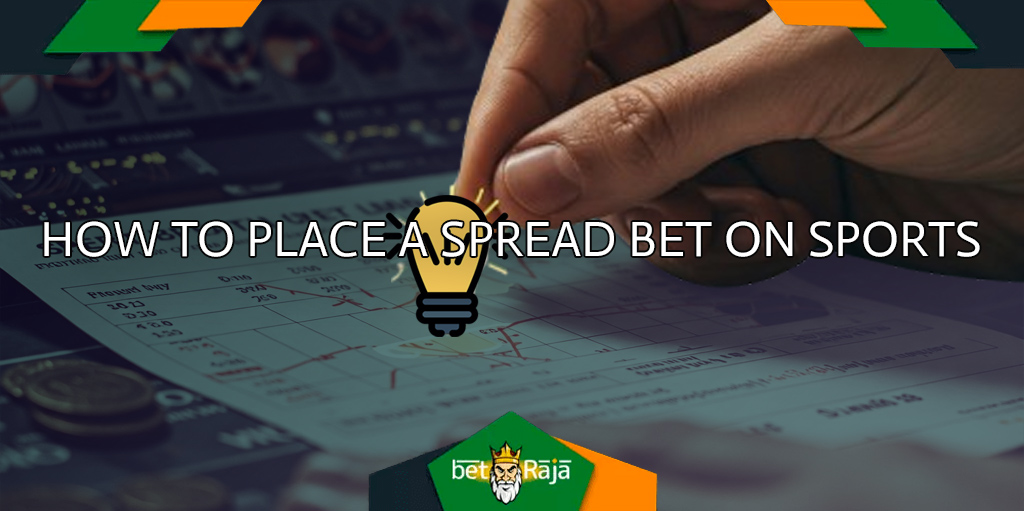Meaning of Sports Spread Betting

Betting on sports is more than just a game of luck — it’s a strategic way to speculate with the sports you love while potentially earning profits. But what if there was a way to go beyond traditional fixed-odds betting and take advantage of underlying market conditions to maximize your returns? This is where sports spread betting comes into play.
Unlike conventional bets, where you simply win or lose based on a fixed outcome, spread betting allows you to profit (or lose) depending on how accurate your prediction is. The more correct you are, the higher your returns. Whether you’re an experienced bettor looking for new strategies or a newcomer curious about how betting markets work, understanding how spread betting works can give you an edge.In this guide, you will find a breakdown of everything you need to know about sports spread betting explained: how it works, why it differs from traditional betting, and the benefits and risks involved. By the end, you’ll have the knowledge to decide whether this type of wagering fits your style and risk appetite. If you are already sure about exploring sports spread betting, make sure to check out spread betting companies and betting sites with bonus on registration to enhance your starting funds and decrease the risks.
What Does Spread Betting Mean?

Spread betting football or with any other sport is a unique form of wagering that differs from traditional fixed-odds betting. Instead of simply winning or losing based on a predetermined outcome, your profit, or loss depends on how accurate your prediction is. The closer you are to the truth, the higher your returns — while incorrect predictions can lead to greater losses. This type of betting is widely used in various sports markets, offering dynamic opportunities for bettors looking to capitalize on price will rise or fall fluctuations.
One important aspect to understand is that sports spread betting is not the same everywhere. The UK and the USA have different definitions for spread betting.
In the UK, sports spread betting works similarly to financial spread bets and CFDs, where you take a position on an event’s outcome and profit or lose per unit of accuracy.
In contrast, U.S. spread betting, often referred to as point-spread betting, revolves around the margin of victory or defeat in a game, with bets placed on whether a team will exceed or fall short of a set spread. This means that while the idea is a bit different from simple winner-of-the-match bets, the mechanism behind is the same — you either win a set amount or lose it.
Benefits of Sports Spread Betting

Sports spread betting offers several advantages that make it an appealing alternative to fixed-odds betting:
- Tax-Free Winnings. Spread betting is free from certain taxes in some countries, particularly the UK, where it’s often promoted as a tax-free activity and not subject to capital gains tax or stamp duty.
- Higher Earning Potential. Unlike fixed-odds betting, where payouts are predetermined, spread betting allows for greater returns based on the accuracy of your prediction—the closer you are, the more you win.
- More Flexibility. Bettors can speculate on whether a team’s performance will exceed expectations, including goals, points, or player stats, rather than simply choosing a winner.
- Risk Management Tools. Many spread betting companies offer features like stop-loss orders and set stop value options, the order will close at a predetermined point, which help limit potential losses.
These and many other advantages make this feature one of the most engaging in the sports betting field, offering Indian players not only a high chance to receive a big payout but also a flexible experience.
Risks Of Sports Spread Betting

While sports spread betting offers exciting opportunities to make a profit from, it also involves significant risks. Below, you can familiarize yourself with the key ones:
- Unlimited Losses. In fixed-odds betting, you can only lose your initial wager, but in spread betting, losses can exceed your original stake and may lead to a margin call.
- Emotional Decision-Making. The dynamic nature of spread betting can lead to impulsive betting, causing losses due to emotional rather than strategic choices.
- Unpredictable Factors. External influences such as injuries, referee decisions, or unexpected game events can drastically affect the outcome and the value of the bet.
Understanding these risks and managing your account to cover losses properly can greatly reduce your exposure and even boost winnings.
How To Place a Spread Bet on Sports

Placing a spread bet requires careful analysis and an understanding of market trends. Below is a step-by-step guide to getting started:
Choose a Spread Betting Site
Select a reputable bookmaker that offers sports spread betting. Look for platforms with competitive spreads, reliable odds, and strong security features.
Select a Market
Decide which sport or event you want to bet on. Spread betting is a way to engage with football, basketball, or even tennis using performance metrics.
Analyze the Spread
The difference between the buy and sell levels is known as the spread. Bookmakers set a spread by estimating the expected margin of victory. You will see two prices options:
- Buying the Spread: When you “buy” the spread, you are betting that the outcome of the event will be higher than the upper limit of the bookmaker’s spread. For example, if the spread for total goals in a football match is 2.5–3.0, and you predict there will be more than 3 goals scored, you would buy the spread. Your profit increases for every goal scored above 3, but if fewer than 3 goals are scored, you incur a loss for each goal below the upper limit.
- Selling the Spread: When you “sell” the spread, you are betting that the outcome of the event will be lower than the lower limit of the bookmaker’s spread. Using the same football match example, if the spread is 2.5–3.0 and you predict fewer than 2.5 goals, you would sell the spread. For every goal scored below 2.5, your profit increases, but if more goals are scored, your losses grow accordingly.
Take a Position
Decide on the amount you want to stake (e.g., 100 INR per point). Your profit or loss will be determined by how much the actual result differs from the spread. The further the result moves in your favor, the more you win. The further it moves against you, the more you lose.
Monitor & Close Your Trad
Keep track of your bet in real time. Some platforms allow you to adjust or close the order before the event ends, helping you manage potential losses or secure profits at the best available price.
By following these steps, sports spread bettors can make more informed decisions and improve their chances of success. Spread betting requires discipline, research, and an understanding of how point spreads work.
Example of Spread Betting in Football

A spread betting firm offers a goal spread of 2.5–3.0 for a football match. If you think the game will have more than 3 goals, you place a bet at 3.0. If 5 goals are scored, your profit from spread betting is (5 – 3) x stake. In case only 2 goals are scored, you lose (3 – 2) x stake.
For example, if you wager 50 INR per goal and the final score is 5-2, the total number of goals is 7. The spread was 3.0, so the calculation is (7 – 3) x 50 INR = 200 INR profit. However, if the match ends with only 1 goal, the calculation would be (3 – 1) x 50 INR = 100 INR loss.
Unlike fixed-odds betting, where the risk is capped, spread-betting allows both greater earnings and greater potential losses, making it a strategy for experienced spread bettors. The fluctuations in football performance, influenced by factors like injuries or red cards, further emphasize the importance of risk management.
What does 1.5 spread mean in sports betting?
A 1.5 spread means the favored team must win by at least 2 points for a bet to succeed. If the team wins by only 1 point or loses, the bet is unsuccessful.
What does 7.5 mean in betting?
A 7.5 spread means the favorite must win by at least 8 points, while the underdog can lose by up to 7 points and still cover the bet. If the favorite wins by exactly 7 points, the bet is lost.
Is spread betting gambling?
Yes, spread betting is considered a form of gambling, as it involves wagering on the outcome of a sporting event with the potential for financial gain or loss.




